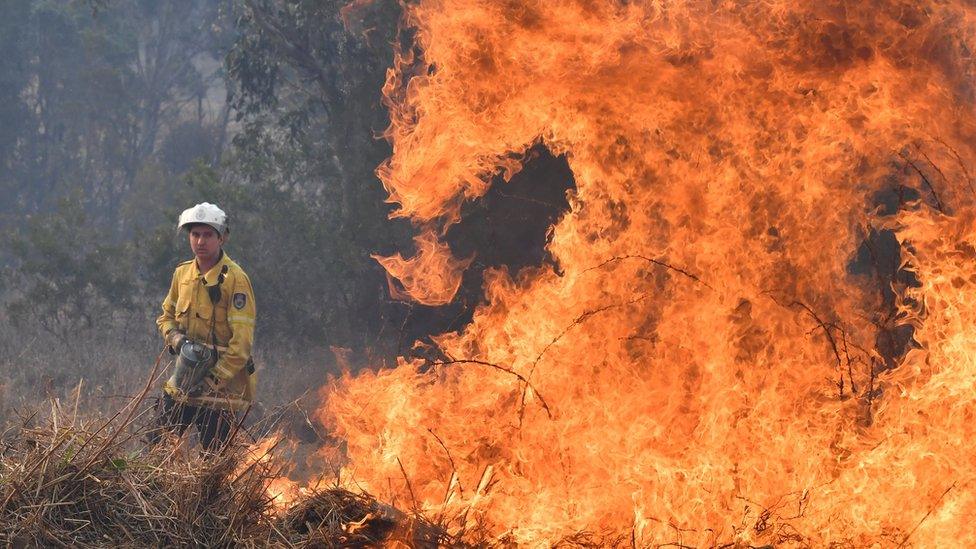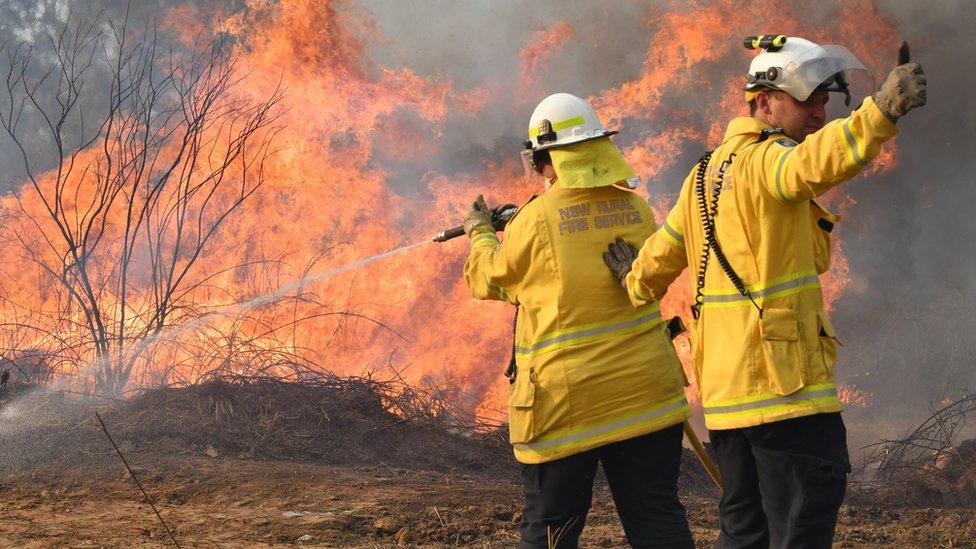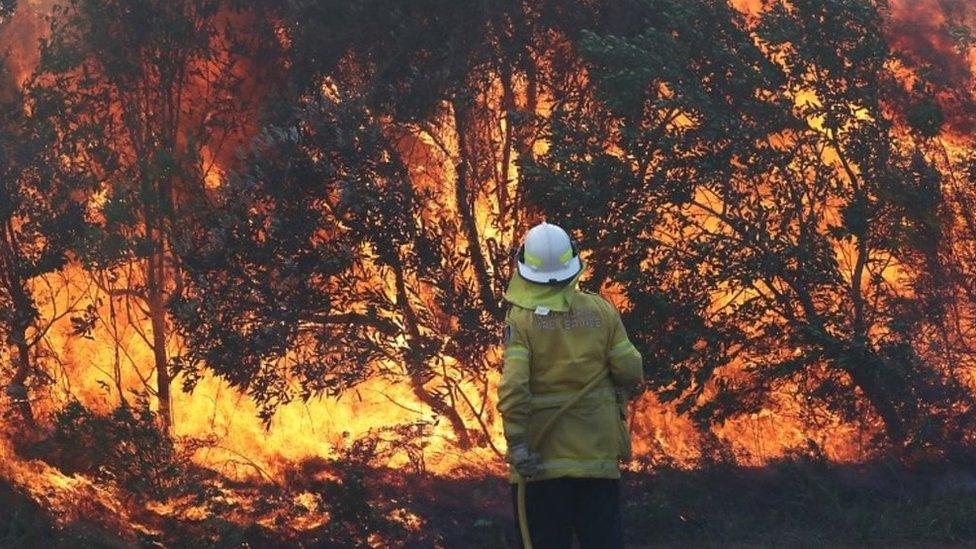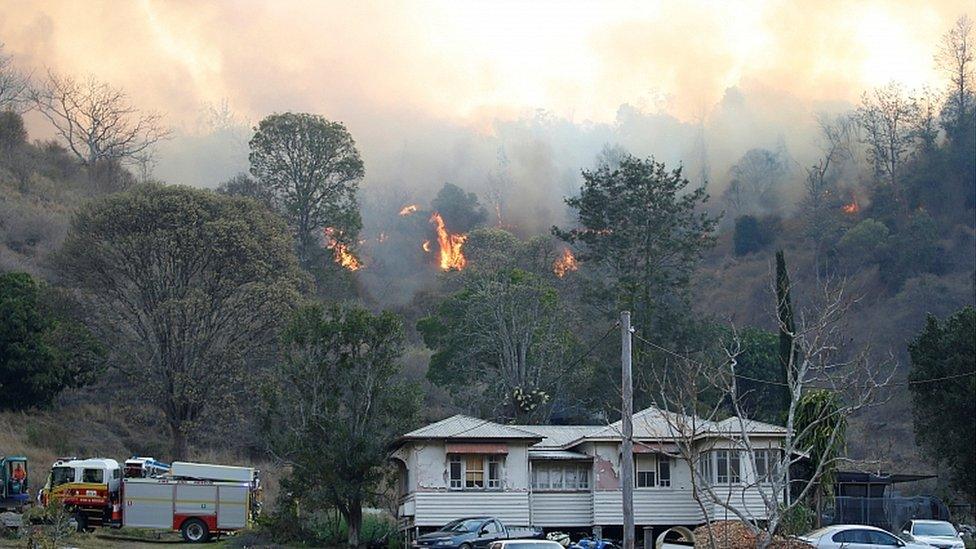Australia bushfires: Dozens of houses destroyed or damaged
- Published

Firefighters have been battling some bushfires for more than a month
Up to 30 houses have been destroyed or seriously damaged in a bushfire in the Australian state of New South Wales.
Scores of blazes burned across the state and neighbouring Queensland on Tuesday as temperatures climbed as high as 40C (104F) in some areas.
Authorities said one man had suffered serious burns in a fire that was thought to have been deliberately lit.
Drought-affected parts of eastern Australia have endured intense fires since September - the start of spring.
Authorities have described it as the worst start to the fire season on record in some areas.
Bushfires were presently affecting more than 100,000 hectares of land. In some areas, the blazes had raged for more than five weeks.
Dozens of houses were razed or damaged in the rural town of Rappville and surrounding areas on Tuesday. Authorities said they were investigating it as a possible case of arson.
A home in Laidley, Queensland, was destroyed in a separate fire.

One Rappville resident, Danny Smith, told reporters on Wednesday: "I've lost the bloody sheds, the house, lost everything."
Another man was flown to hospital after suffering serious burns while trying to protect his home, authorities said.
"For a little while there, we even hit catastrophic fire conditions and now we've dropped back into the extreme conditions," said Queensland deputy fire commissioner John Bolger.
Why Australia bushfires are now 'hotter and more intense'
The bushfires follow record high winter temperatures and sparse rainfall. Prior to that, Australia had its hottest summer on record.
Many areas of south-east Australia are enduring a prolonged and severe drought, which scientists say is being exacerbated by climate change.
- Published10 September 2019

- Published12 September 2019

- Published8 September 2019

- Published11 September 2019
